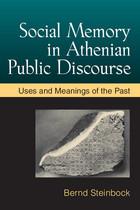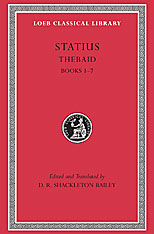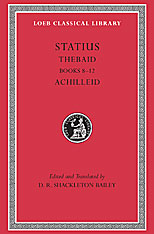
Homer’s Iliad and Odyssey are the only early Greek heroic epics to have survived the transition to writing, even though extant evidence indicates that they emerged from a thriving oral culture. Among the missing are the songs of Boeotian Thebes.
Homer’s Thebes examines moments in the Iliad and Odyssey where Theban characters and thematic engagements come to the fore. Rather than sifting through these appearances to reconstruct lost poems, Elton Barker and Joel Christensen argue that the Homeric poems borrow heroes from Thebes to address key ideas—about politics, time, and genre—that set out the unique superiority of these texts in performance. By using evidence from Hesiod and fragmentary sources attributed to Theban tradition, Barker and Christensen explore Homer’s appropriation of Theban motifs of strife and distribution to promote his tale of the sack of Troy and the returns home.
As Homer’s Thebes shows, this Theban material sheds light on the exceptionality of the Homeric epics through the notions of poetic rivalry and Panhellenism. Furthermore, by emphasizing a nonhierarchical model of “reading” the epics derived from oral-formulaic poetics, this book contributes to recent debates about allusion, neoanalysis, and intertextuality.

Integrating literary, epigraphic, and archaeological evidence with recent scholarship on memory, identity, rhetoric, and international relations, Social Memory in Athenian Public Discourse: Uses and Meanings of the Past enhances our understanding of both the function of memory in Athenian public discourse and the history of Athenian-Theban relations. It should be of interest not only to students of Greek history and oratory but to everybody interested in memory studies, Athenian democracy, and political decision making.

Fraternal strife.
Statius published his Thebaid in the last decade of the first century. This epic recounting the struggle between the two sons of Oedipus for the kingship of Thebes is his masterpiece, a stirring exploration of the passions of civil war. The extant portion of his unfinished Achilleid is strikingly different in tone: this second epic begins as a charming account of Achilles’ life.
Statius was raised in the Greek cultural milieu of the Bay of Naples, and his Greek literary education is reflected in his poetry. The political realities of Rome in the first century are also evident in the Thebaid, in representations of authoritarian power and the drive for domination. Shackleton Bailey’s new edition of the two epics, with a highly skillful translation, addresses a number of puzzles in the text and its interpretation and provides essential information on mythological and other references. Kathleen M. Coleman, Professor of Latin at Harvard University, contributes a survey of recent scholarship on Statius’ epics.
The new Loeb Classical Library edition of Statius is complete in three volumes.

Fraternal strife, and the young Achilles.
Statius published his Thebaid in the last decade of the first century. This epic recounting the struggle between the two sons of Oedipus for the kingship of Thebes is his masterpiece, a stirring exploration of the passions of civil war. The extant portion of his unfinished Achilleid is strikingly different in tone: this second epic begins as a charming account of Achilles’ life.
Statius was raised in the Greek cultural milieu of the Bay of Naples, and his Greek literary education is reflected in his poetry. The political realities of Rome in the first century are also evident in the Thebaid, in representations of authoritarian power and the drive for domination. Shackleton Bailey’s new edition of the two epics, with a highly skillful translation, addresses a number of puzzles in the text and its interpretation and provides essential information on mythological and other references. Kathleen M. Coleman, Professor of Latin at Harvard University, contributes a survey of recent scholarship on Statius’ epics.
The new Loeb Classical Library edition of Statius is complete in three volumes.

The decade of Theban power in fourth-century Greece has not been the subject of a full study in this century. Mr. Buckler provides a totally new look at Theban diplomacy and politics. He examines, for the first time, the social and economic backgrounds of the leaders of Thebes during the period of its hegemony. He focuses attention also on local politics and on the constitution of the Boiotian Confederacy, the federal government created by Thebes in the 370s.
Of special interest is the author's recognition of the historical implications of topography. He has inspected the terrain of the battlefields and routes of communication; his accounts of military campaigns are thus well grounded and convincing. His contemporary photographs of major sites and topographical maps are valuable supplements to the text.
This study is a significant contribution to our knowledge of an important period of Greek history.
READERS
Browse our collection.
PUBLISHERS
See BiblioVault's publisher services.
STUDENT SERVICES
Files for college accessibility offices.
UChicago Accessibility Resources
home | accessibility | search | about | contact us
BiblioVault ® 2001 - 2024
The University of Chicago Press









